Introduction
We are starting this mini book by wishing you WELCOME TO ROMANIA!!!
We know very well that leaving your home and coming in a foreign country, especially for a long period of time, it’s a difficult thing to do. But we understand also, that each one of you was well aware of these things and you thought very well before you said YES and accepted to be an EVS volunteer.
We want to congratulate you for making this decision and we want to ensure you that you WON’T REGRET IT. We are here for you to, to make you feel like home and to make your staying here as pleasant as it can be. All that we want is to create here a big family and your role is essential in doing this.
This project is going to be a challenge for both of us, for you as volunteers working to complete the assignments assumed in it and for us as a hosting organization responsible with you.
For the period of your staying here we want to make sure that you have everything that you need and for this thing we are asking you to communicate with us, let us know what are the problems that you are confronting with your fears and your expectations. Be sincere and don’t be afraid to let us know whatever your problems might be. Together we can find solutions for everything.
The project has a lot of challenging tasks that you are going to do. BE SERIOUS AND HARD WORKING to complete them and we promise you that together we are going to have a once in a lifetime experience. We know that you joined the project because you want to get new abilities, to make new friends, to learn more things about other cultures and many other things but most of all TO HAVE FUN. Working together we are going to achieve all of this and more other.
THINK OUTSIDE THE BOX, BE OPEN MINDED and don’t be afraid to ask questions.
So, again, we are finishing this introduction by wishing you… WELCOME TO ROMANIA
THE PROJECT
Name: RIN TIN TIN INITIATIVES
Duration of the stage: 7 months
Host community: ARAD, ROMANIA
Dates: From January 2016
The proposed ACTIVITIES in the volunteering stage are:
«Rin-Tin-Tin Initiatives» Project aims to develop and increase key competencies of young people, to develope solidarity among young people, to promote non-formal education, active citizenship, social inclusion and volunteering and to strengthen transnational cooperation between european organizations in the field of youth.
The 12 volunteers will implement and develop the following activities:
A. «PET» Club (Activities in the Animal Shelter run by Arad City Hall and workshops for promoting/facilitating transnational adoptions of dogs/cats at The Arad Animal Shelter)
B. «RIN-TIN-TIN» Club of the „Educatio” Association
C. «TEEN» Club – Workshops of support-activities at the Center for Minors in Arad city
D. «BREATH» Club – Workshops for promoting a healthy lifestyle in the field of youth
E. Interactive european languages and cultures Club (the states of origin of the EVS volunteers)
F. Club for promoting the ERASMUS PLUS Programme’s opportunities in the field of youth in Arad
Profile of the volunteer:
-
Age between 18 and 30 years old
-
Resident in the country of the sending organization
-
shows motivation/availability for volunteering
-
Wants to take part, actively, in all phases of the selection
-
Wants to take part, actively, in all phases of the project
Profile of EVS volunteers in the «Youth Culture» project includes the possibility of including fewer opportunities situations. The project provides EVS volunteers including economic difficulties such as: long unemployment (12 consecutive months), members of families with very low income (50 % below the national minimum wage).
.
Positive attitudes in EVS
The volunteer should take an active role in setting up her/his EVS project together with the promoters, and this should be encouraged by the Sending, Host and Coordinating Organization.
The volunteer must respect the rules and the organizational structure of the Host Organization. The volunteer must also abide by the laws in force in the host country.
The volunteer must keep the Host Organization informed about her/his whereabouts during the period of service.
While abroad, the volunteer should give the Sending Organization regular feedback on her/his experience and must evaluate the overall project with the Sending Organization upon her/his return.
Working hours:
The volunteers will work approx. five days/week, 7 hours (average)/day. Sunday and Monday are free.
Each EVS volunteer will have 2 free days/month, but the free days shouldn’t interfere with different events.
The working hours include also the preparation hours of the activities.
*Note: The holiday will be taken by the volunteer upon a common agreement with the coordinating/hosting organization. The coordinating/hosting organization needs to be announced about any departure from the places where activities take place. The holiday cannot be taken in full time at the end of the stage.
The Mentor:
All the volunteers will benefit from a mentor, which will be available for their needs. The mentor will organize meeting with all volunteers he is in charge of and as well he will be available for single sessions in case the volunteer asks for this. The mentor will organize several activities with the volunteers which will help them: reflect about the learning outcomes of the stage, to realize the things learned during the project, to overcome barriers, to integrate better in the local community, etc.
Also the mentor will ask for reports of reflection groups that will teach the volunteers to organize between themselves.
The local facilitator:
The activity facilitator will help the volunteer organize his time properly and will oversee all the volunteers activities. He will divide the volunteers in working groups, will organize weekly meetings to discuss activities and plans of volunteers, will accompany the volunteers for the 1st times at the activity places and will offer support them where it is needed.
The facilitator as well will overview the whole activity of the volunteers and will ask them for their activity reports. He will most of time with the volunteers from the whole group.
The language classes:
Volunteers will participate to language classes over the whole period of stage. The classes will be organized once a week most probably in groups. Each volunteer will receive a language written special course. The course is specially written for EVS volunteers who are having a long stage in Romania.
The hosting place:
There will be 2- 3 persons/room; depends on how big the room in which you will be hosted is.
You will have access to bathrooms (common bathroom and showers/floor), kitchen (1 kitchen equipped).
The hosting place will be in the city of Arad is close to public transportation or even the activity place.
The facilitator together with the mentor will establish some common daily life rules to help the volunteers live and share common things. This will help especially the volunteers who for the first time are away from home or did not live together with other persons before.
The working place:
The coordinating/hosting organization will prepare a working place for the volunteers where they will have internet access, some computers which they will have to share for working, checking e-mail, writing reports and preparing their next activity.
In the working place there will be some necessary material like paper, colors, pens etc.
Meetings with the mentor, the local facilitator and as well Romania classes will be held probably in the office.
Due to the fact that you are not going to be the only volunteers who is going to use the office and you will have to share it with others, most probably we will establish a schedule for you to use the office so in this case it will be not crowded.
Food & Allowance:
The volunteers will receive a monthly food allowance and they can either buy food, either cook for themselves.
The monthly food allowance will be 100 Euro – paid until the 5st of each stage month and as well 60 Euro allowance. All of our previous volunteers received the same amount of money and they managed very well. The amount will be received in the National Currency: RON.
Local transportation:
In case the accommodation will be more than 20 minutes by walk from the working place of volunteers, the hosting organization will provide tickets or tram season ticket for the public transportation.
Luggage:
Please keep in mind you will stay for 6 months. Please do not forget you personal belongings or stuff you may need and can not be found in Romania, We are referring here mostly to medicine, which in Romania you need a recipe from a medical doctor in most of the cases and as well it can have different name than in your hometown.
Most probably all of you who decide to travel by place will have a 20 – 23 kg bag and as well a small bag which you can take into the plane for 8 kg, included in the ticket price. For volunteers traveling by bus, train or car they will not have problems with the weight of the luggage.
“ Don’t misunderstand us, but we have to tell you also about the behavior. Please take into consideration that the people from Romania are very hospitable, they are always welcoming their guests. But there is one aspect, though: when you meet people from a different culture than some of you are used to, it may take a while to integrate fully. So, our suggestion is for you to be a little reserved at the beginning and to have patience until you get to know the people because an action of yours may have an impact on the whole group.”
The trainings:
All the volunteers will follow a serious of mandatory trainings we and the National Agency in Romania is organizing and as well we can organize a very large number of trainings for the personal development o the volunteers in case they are asking for it and if they are interested.
1. Introductory training – will be organized in the first weeks after the volunteers arrival: it will help the volunteer to integrate better in the group, to get to know the team, the other volunteers, the activities and the place, the city, and in details the duties of the project as well as the schedule.
2. On- arrival training – will be organized by the National Agency in Romania in the 1st month after the volunteer’s arrival.
3. Mid – Term evaluation – will be organized by the National Agency in Romania and will help evaluate the EVS stage at his middle.
The Coordinating and Hosting organization:
ASOCIATIA EDUCATIO main preoccupation in the field of education, cultural and youth programs. The association aims to identify, discuss, analyze and solve specific problems of the youth segment and also to develop programs and projects. As well they are representing a true interface between civil society and local and central institutions. Its objectives are stimulates volunteering, develops communication and interpersonal relations, promotes intercultural dialogue and implements national and international projects. The association aims to optimize youth involvement in public life, forming them as active citizens.
Our city ARAD:
Did you know that Arad is situated on the West part of Romania, 50 km far from Hungarian border?
Did you know that is the 13th bigger city from Romania, with around 200.000 citizens?
But did you know this? Mures is the river that crosses Arad and it’s the second biggest river from Romania (after Danube, of course) and we have a wonderful fortress here and in the past Arad was called “little Vienna” because the architecture from the center of the 2 cities were quite similar.
You can watch a video about Arad city at http://www.youtube.com/watch?v=IzOuM8KvjzA.
Our country ROMANIA:
Europe’s oldest remains of modern human were discovered in the “Cave With Bones” in present day Romania and they are estimated to be 42,000 years old. However the first written history of the country was about the Getae tribes and dates back in 440 BCE. In the Ancient year’s Thracian tribes from Greece who established the state of Dacia inhabited the land. The Dacians suffered many conquests made by the Romans eventually becoming under their rule. The area and its people where then subject to a complete Romanization, enforcing the Latin language onto the people. This was the beginning of the formation of the Romanian culture.
Romania has been a rather worn-torn country throughout its history. Due to its location the country has had to encounter many invasions from its neighboring nations migrating through the area.
Through these battles and invasions many brave heroes arisen defending their lands. Notable is Vlad
As the centuries past and the World Wars raved havoc through the land the country had to deal with another ordeal, the communist rule of Nicolae Ceausescu. His dictatorship literally destroyed the country’s economy and resources with his absurd giant building projects. Under his rule the people were forced to live a rather low standard of life. Despite this a revolt raised in 1989 in Timisoara soon was spreading all over the country. The dictatorship was overthrown and democracy political system was established. This victory by the people allowed Romania’s economy to return the European market and rejuvenate their cultural status.
Nowadays, Romania is rapidly integrating with Western Europe and becoming a popular spot for tourism.
Since the Romanian Revolution of 1989, European Union (EU) membership has been the main goal of every Romanian Government and practically every political party in Romania. Romania signed its Europe Agreement in 1993 and submitted its official application for membership in the EU in 1995, the third of the post-Cold War Eastern European countries to do so after Hungary and Poland. Along with its official EU application, Romania submitted the “Snagov Declaration”, signed by all fourteen major political parties declaring their full support for EU membership.
The Accession of Romania to the European Union took place on 1 January 2007. This date was set at the Thessaloniki Summit in 2003 and confirmed in Brussels on 18 June 2004. The country reports of October 2004 also affirmed the 1 January 2007 date of accession for both Bulgaria and Romania. The Treaty of Accession was signed on 25 April 2005 at Luxembourg’s Neumünster Abbey. The 26 September 2006 monitoring report of the European Commission confirmed the entry date as 1 January 2007. The last instrument of ratification of the Treaty of Accession was deposited with the Italian government on 20 December 2006 thereby ensuring it came into force on 1 January 2007.
Geographic location:
• South-East of Central Europe, North of the Balkan Peninsula, in the Lower Danube basin, bordering on the Black Sea. Time Zone Area: Seven hours ahead of U.S. Eastern Standard Time (GMT + 2)
Borders:
• East: Ukraine, the Republic of Moldova and the Black Sea
• South: Bulgaria;
• West: Hungary
• North: Ukraine.
Climate:
Temperate continental, with oceanic influences from the West, Mediterranean from the South-West, excessive continental from the North-East. Mean annual temperatures: ranging between 8°C in the North and 11°C in the South. Average annual rainfall does not exceed 700 mm.
Demographic structure: Romanians – 89.47%; Hungarians (plus Szecklers) – 7.12%; Gypsies – 1.76%; other nationalities – 1.65%.
Administrative division: 41 counties and Bucharest municipality (with a county status), 260 towns (out of which 57 municipalities), 2,688 communes (with about 13,000 villages).
Your insurance:
EVS Volunteers are covered by an insurance plan specially designed to protect participants in the European Voluntary Service (EVS) during their period of voluntary activity. Cover is offered free of charge to EVS Volunteers. The Insurance premiums are paid by EACEA.
The aim of this plan is to give you access to an insurance network, which can help you whenever a medical, dental, disability or liability problem occurs.
All EVS Volunteers may claim the insurance, but will only be covered if the registration form for the group insurance plan has been completed and signed by the Volunteer and the Sending or Hosting Organization, or by the Volunteer and the Coordinating Organization in the case of projects on a European scale and multilateral projects with third-party countries.
Cover is valid throughout the world, 24/7, from the date when you leave home en route to the Host country, up till the second month following your return home at the end of your European Voluntary Service. Cover is also in place for preparatory meetings before your departure and for follow-up and final assessment meetings after your return.
The currency of the EVS plan is the Euro (EUR) but invoices for medical and dental care may be submitted in any other currency. Health care expenses are usually reimbursed in the currency indicated by the Volunteer on the registration form.
You are covered for the costs of hospitalization, surgery, medical and dental treatment throughout the world, on condition that the local medical authorities as being essential to recognize such treatment and/or supplies the treatment of the illness, the injury or (as the case may be) pregnancy, and provided by medical practitioners working in the field for which they are qualified (in accordance with the legislative, regulatory or other provisions concerning the exercise of their profession in the country concerned).
You are free to choose your own doctors and hospitals. You can use the public or private health service.
The EVS program does not cover certain medical and dental expenses:
– Treatment that is not necessary from a medical point of view, such as aesthetic treatment, orthodontic treatment, aesthetic surgery, pharmaceutical products that are not prescribed, personal expenses in a hospital (telephone, television, newspapers, etc.);
– Psychoanalysis;
– The treatment of psychiatric, mental or nervous problems or those related to alcohol or drug abuse outside the hosting country and the country of origin;
– Sunglasses;
– Hydrotherapy and cures at thermal spas;
– Hospital or doctors’ fees, which are clearly excessive or not customary, may be rejected or only partly reimbursed.
For the usual medical expenses (consultations, pharmacy, analyses, radiology, as well as dental and optical care), first pay the expenses before sending them to the management center for reimbursement.
Risk and Conflict Management:
The volunteer must not act in any way that could put others or her/himself at risk of being injured.
If a conflict situation arises, the volunteer may ask her/his mentor to facilitate communication between the volunteer and the local environment or Host Organization.
The mentor should be able to provide an independent an objective evaluation of the situation. If conflict arises between the volunteer and the mentor, the volunteer can ask to get another person appointed as her/his mentor. In the event of a conflict situation, the volunteer should be supported and must cooperate actively with the Coordinating, Sending and Host Organizations to avoid communication problems. If a serious incident occurs, the volunteer can expect the mentor to establish and maintain appropriate contact with the Sending Organization, her/his next of kin (if required or requested) and the insurance company, if necessary.
How to apply
Building Bridges Association members will have preference, please enroll to the association here.
For the selection of the volunteers we will need:
– Europass CV with picture (made in the last month)
– Motivational letter, writing that your sending organisation will be “Building Bridges”. We ask all candidates to send a specific letter of motivation – why they want to volunteer with us rather than just a general EVS one.
Remember to write in the motivation letter that your sending institution is “Asociación Building Bridges”.
All documents written in english you can send to: asociacionbb@gmail.com with subject “EVS Romania RinTinTin»
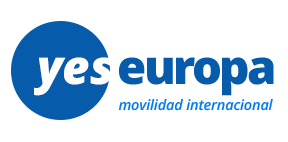
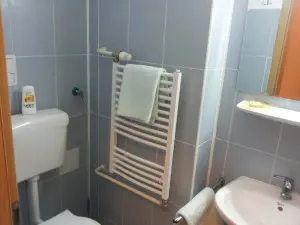
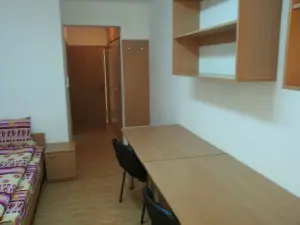
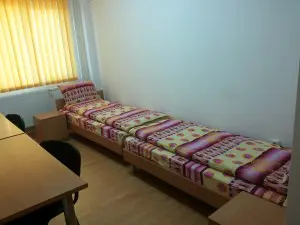

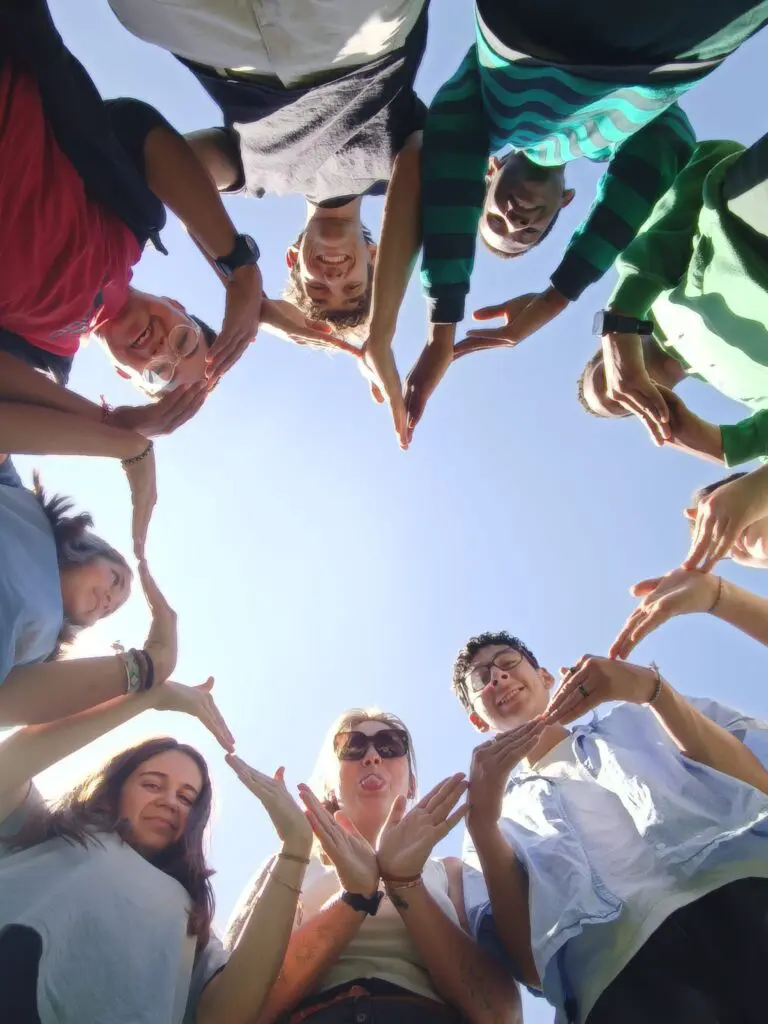
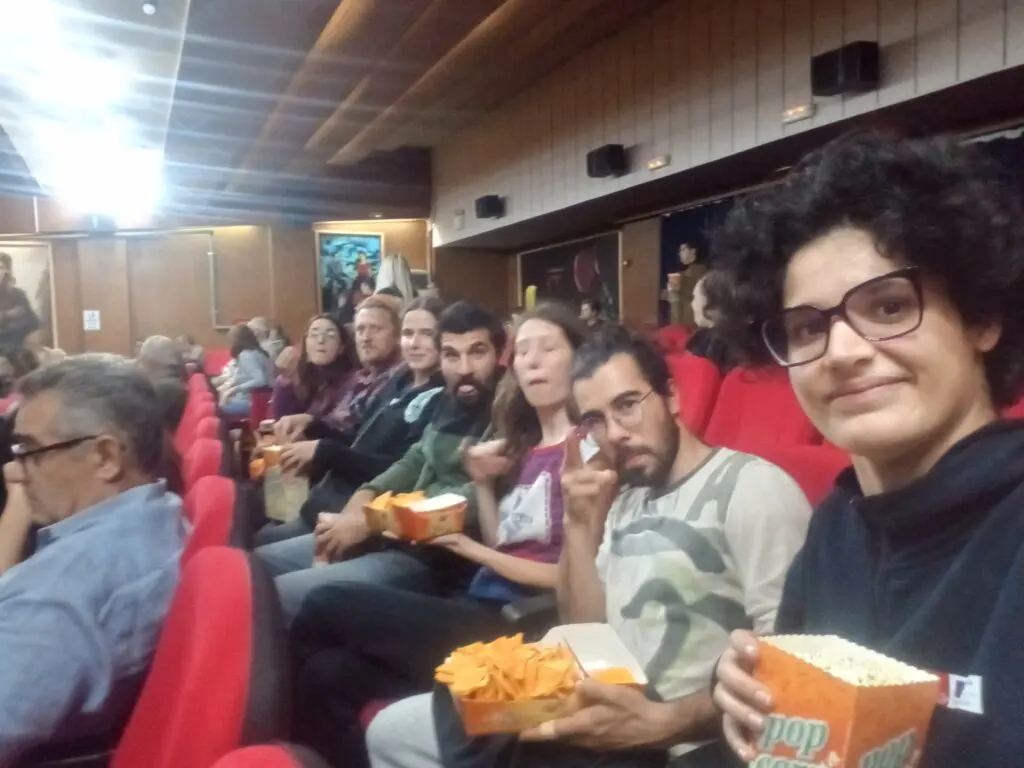
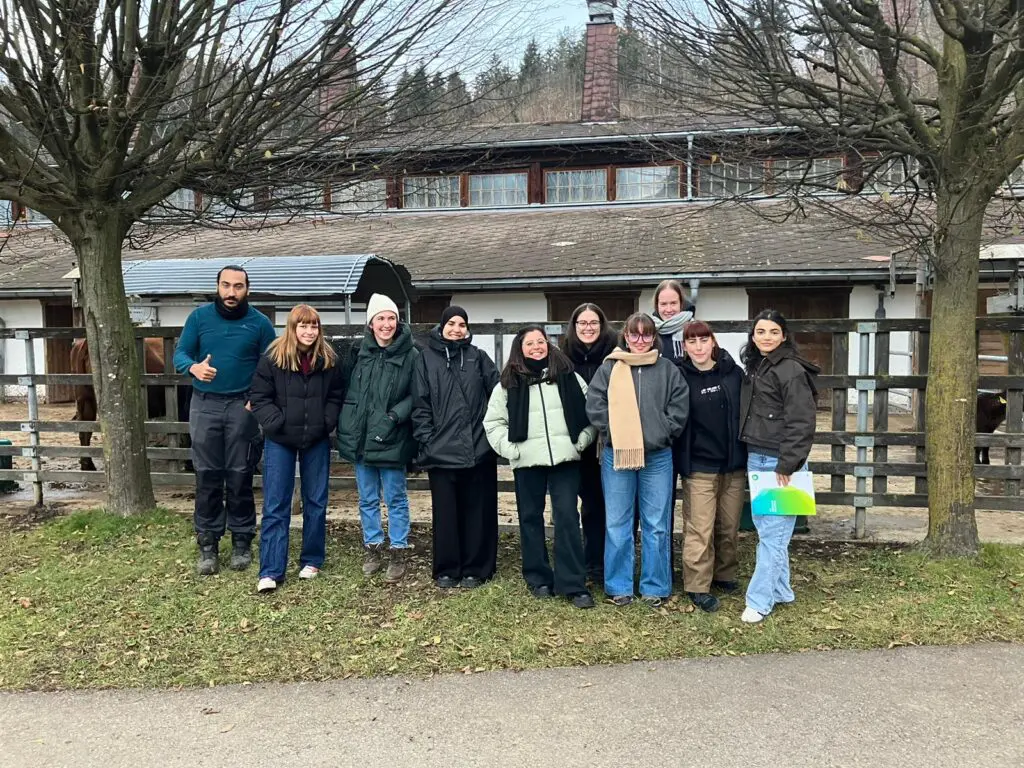
Alberto
20 agosto, 2015 at 12:20 am¿No hay fechas? ¿Cuando comienzan los 7 meses?
Muchas gracias 🙂
Add a comment